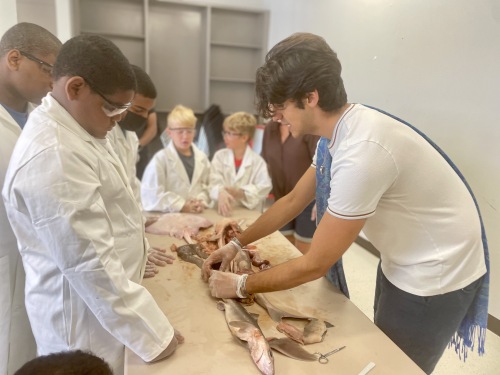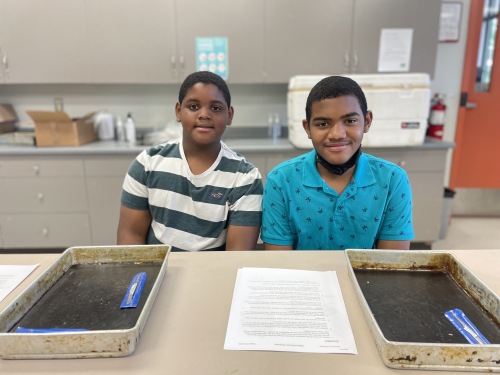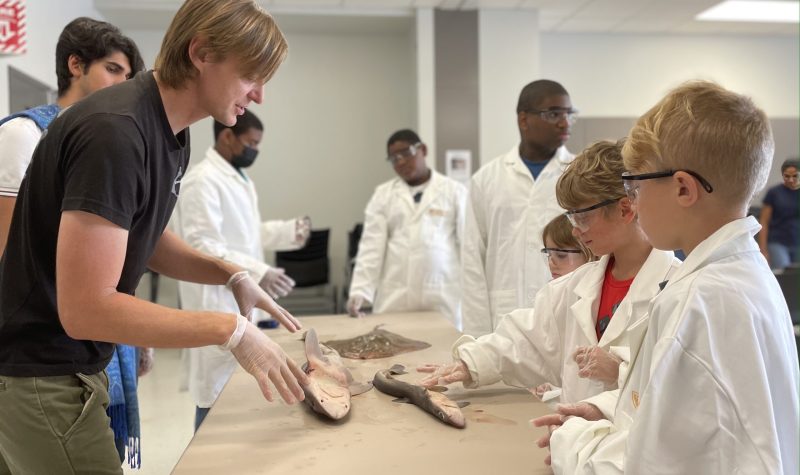Diversity of Nature, a BIPOC-led and BIPOC-focused science outreach by Dalhousie University, introduced Shark Week, a series of shark-themed events for children and adults to participate in to learn more about sharks, skates and rays at the Museum of Natural History.

Aaron Judah shows kids how to properly dissect a shark. Photo by Sara Gouda.
Judah said these seminars are important to engage youths and entice them to learn more about sharks, to become shark advocates in the future, or perhaps even marine biologists.
Dr. Chris Mull, Dalhousie postdoctoral research fellow from the department of biology, gathered the kids and began dissecting a small shark on the table, to show them the easiest method before they start cutting open the fish themselves.

Fairview Heights Elementary school brothers Hayven Joseph, 13 (left) and Hayden Joseph, 11 (right) participated in Shark Week. Photo by Sara Gouda.
Shark enthusiast Hayven Joseph,13, from Fairview Heights Elementary, dissected a shark for the first time with his two brothers and said his favourite shark species are Mako sharks and Great Whites.
Jan Eddy brought her two grandkids and neighbors to partake in the event saying it is a good learning experience.
"We're very excited. We didn't know this was going on," said Jan. "So when I found out I thought 'oh, I have to have hands-on with this.' Dissecting things is great for them, I think the younger they start the better."
"My name is Teige, I'm 9. I've dissected a fake frog before, this is my first time dissecting a real thing," added Teige.
Shark Week will be concluding with two more events on Sat. Aug.27, at the Museum of Natural History.
A local shark panel, from 11:00 a.m. – 12 p.m. will cover conversations by local shark scientists working here and around the world.
Also, shark and whale interactive booths will be open to the public from 12:00 p.m. – 3 p.m. The set of booths are meant to help immerse students in understanding the important roles sharks and rays perform in our oceans.
Listen to the full interview below:


